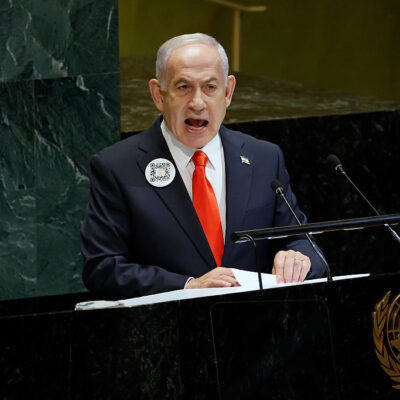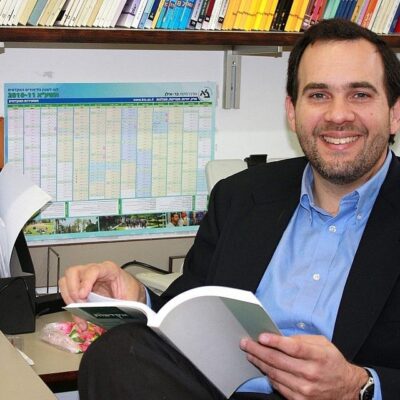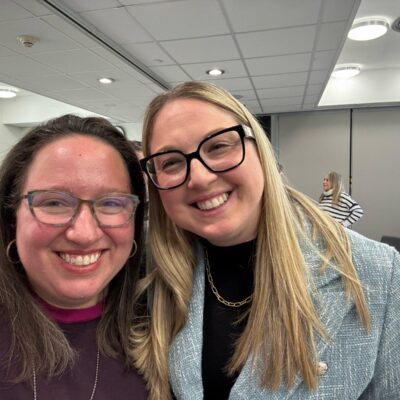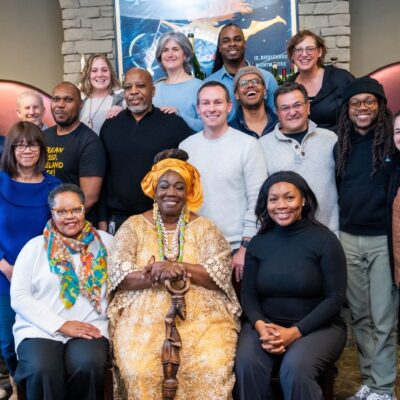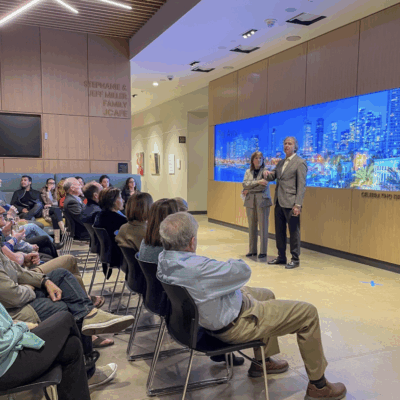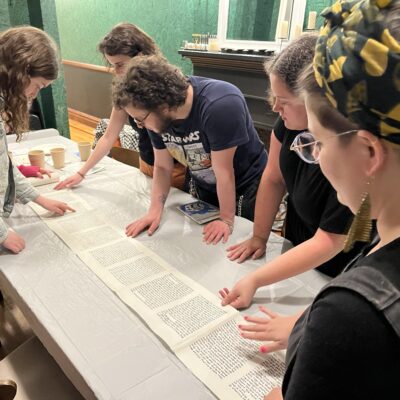Opinion
AN ABRAHAMIC APPROACH
The Abraham Accords offer a model and a means for countering antisemitism on campus
Today marks the fifth anniversary of the Abraham Accords, a landmark peace agreement between Israel and multiple Arab nations. The Accords didn’t just reshape geopolitics — they also opened doors for interfaith dialogue between Jews, Christians and Muslims, the three Abrahamic faiths. On today’s polarized campuses, teaching about these exciting ecumenical conversations could make a real difference. The Accords show that peaceful coexistence in the Middle East is possible and offer a model for civil dialogue across differences, providing a constructive way to counter antisemitism and anti-Zionism on college campuses.
In September 2023, I joined a delegation to the United Arab Emirates with Yeshiva University’s Zahava and Moshael J. Straus Center for Torah and Western Thought. We met with leaders at the Mohammed Bin Zayed University for Humanities, spoke with local diplomats and dignitaries and attended a sustainability conference at the Abrahamic Family House, a unique complex featuring a mosque, a church and a synagogue. At the time, it felt like the beginning of a renewed era of Judeo-Islamic coexistence.
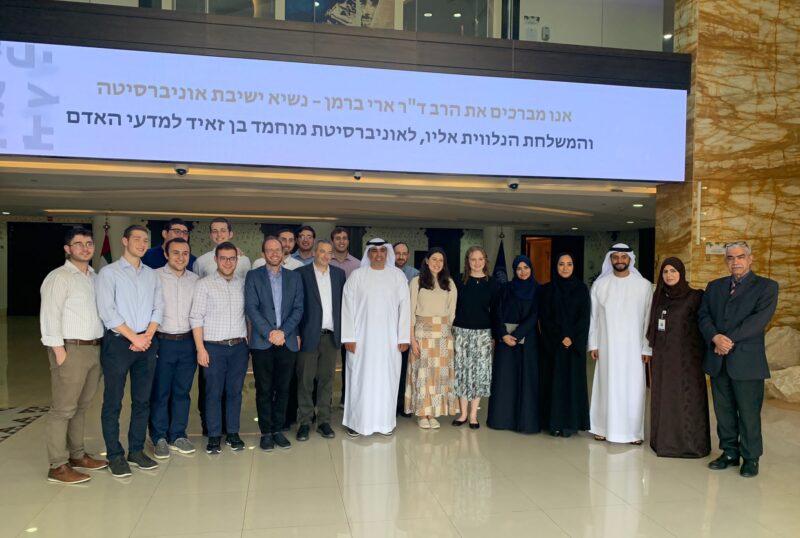
Courtesy/Yeshiva University
Yeshiva University delegation visits Mohammed Bin Zayed University for the Humanities on Sept. 21, 2023.
Hamas’ brutal massacre in Israel just weeks later on Oct. 7, designed in part to block further normalization between Israel and Saudi Arabia, tragically slowed that progress. Today, the Jewish community in the UAE is far less safe: A Chabad rabbi in the region, Zvi Kogan, was murdered in November 2024, and Israel’s National Security Council has issued a Level 3 alert for travelers to the region. Jewish parents in the UAE have reported an increase in antisemitic incidents toward their children in schools. The U.S. Mission to UAE has also urged American citizens to avoid Jewish and Israeli-associated locations in the country.
Even so, the Accords continue to offer lessons that should not be ignored. Students can learn from their successes, and from the young Middle Eastern activists who, like their American counterparts, care about justice and human dignity, and they stand firmly against the denial of Jewish and Zionist identity. As several of my colleagues have argued, “interfaith activities under the framework of the Abraham Accords demonstrate that hostility is not an inevitable response to Israel’s presence in the region.”
For example, Sharaka, a non-profit NGO formed just after the Accords were signed, brings together Israelis and Arabs to promote dialogue and mutual understanding. Influencers such as Loay Alshareef, an Egyptian activist, have embraced the Accords as a means to build bridges across the Jewish-Muslim divide. In May 2023, the diplomatic framework of the Accords helped facilitate a Women Connect to Innovate conference in Morocco for nearly 100 female business leaders of different faiths from across the region.
Additionally, educating students about the Accords helps them better understand America’s own Abrahamic tradition of religious pluralism. Jewish-Christian dialogue has long had a central place in America’s legacy of liberty, but Islam belongs in that story as well. George Washington proclaimed that the “bosom of America is open” to all people of faith or no faith; John Adams cited Mohammed as a respected source of wisdom; and Thomas Jefferson, who owned a Qur’an, designed his Virginia Statute for Religious Freedom to protect all faiths, including Jews, Christians, Muslims, Hindus and others. The Accords’ vision to promote peace among Jews, Christians and Muslims is exactly the kind of model our campuses need today.
Initiatives such as the UConn Abrahamic Programs have already demonstrated the success of this model. This academic center educates students about the three monotheistic faiths’ many commonalities. For example, numerous events and conferences put on by the program educate students on shared priorities in climate change, entrepreneurship and innovation, sacred arts and historical traditions. While other campuses struggle with conflict and division, UConn has built meaningful bridges among students of diverse faiths and cultures by emphasizing shared values. The academy needs more programs like these to enrich education and foster lasting cooperation.
This academic year, the Academic Engagement Network hopes to fund more educational endeavors like the UConn Abrahamic Programs through AEN’s Abraham Accords Campus Initiative. In spring 2026, for instance, we are supporting a cross-disciplinary conference at the University of Cincinnati that will engage students, faculty, administrators and the broader community to explore the economic, political and religious opportunities made possible by the Accords framework.
As we look back on the five years since the Abraham Accords promised transformative change in the Middle East, Jewish non-profits should help make it possible for more organizations and educators on American campuses to teach these lessons. Doing so can combat antisemitism, foster interfaith understanding and strengthen America’s own legacy of religious pluralism.
Yisroel Benporat is the senior associate for faculty engagement in New York at theAcademic Engagement Network. Previously, he served as a lecturer at Yeshiva University in the department of history and in the Straus Center for Torah and Western Thought.

 Add EJP on Google
Add EJP on Google
